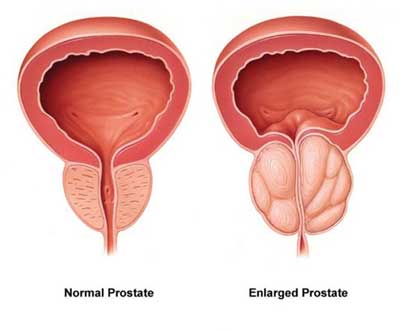Erectile Dysfunction
Erectile dysfunction is when a man cannot achieve or maintain an erection that is firm enough for sexual intercourse. Having ED once in a while is normal, but if you experience ED for more than three months, talk to your doctor.
Causes
The most common cause of erectile dysfunction is a cardiovascular problem. The blood vessels in the penis are among the smallest in the body and are often the first to exhibit symptoms of high blood pressure (hypertension) or arthersclerosis (hardening of the arteries), or diabetes.
Other causes of erectile dysfunction include surgery, such as prostate cancer surgery, that affects the nerves or blood vessels that play a role in getting erections. Side effects from medications such as antidepressants or antihistamines, emotional or mental stress, and lifestyle choices including smoking and alcohol and drug abuse can also cause ED.
Although common among older men, ED isn’t part of normal aging. Aging increases the chance of developing the above causes of erectile dysfunction, but age in itself should not be considered a cause of ED. Moreover, there is no reason that getting older should prohibit an active sex life.
Testing and Treatment
 The symptoms of an enlarged prostate may be mild or come and go, and as a result, most men wait several months, even years, before seeing a doctor. In general, waiting to see a physician does not pose a problem.
The symptoms of an enlarged prostate may be mild or come and go, and as a result, most men wait several months, even years, before seeing a doctor. In general, waiting to see a physician does not pose a problem.
- A weak urine stream
- Trouble starting the flow of urine
- Starting and stopping again when urinating
- Not emptying your bladder completely
- Urinating more often, especially at night
- Sudden urges to urinate
- Leaking or dribbling after you urinate
- Straining to urinate
Testing and Treatment
Diagnosing erectile dysfunction involves a discussion of your medical history and symptoms; a physical examination to look for signs of problems with your circulatory, nervous, and endocrine system; and routine lab tests to check for underlying conditions such as heart disease, diabetes, and low testosterone.
Treatments
- Medication Adjustments: Adjusting a medicine that is triggering ED may be all you need to do
- Behavioral Changes: The first step in treating ED is to eliminate possible reversible causes. These changes include controlling hypertension and diabetes. Quitting smoking, exercising, or losing weight can improve ED.
- Counseling: This can help if your ED is affected by stress, depression or anxiety
- Medications: Sildenafil (Viagra®) is an oral medication that revolutionized the treatment of erectile dysfunction. It and newer medications of the same class work by preventing the breakdown of cyclic GMP, a molecule in the penile blood vessels involved in normal erections. It augments and prolongs the normal penile mechanism and is generally very safe. It does, however, interfere with nitrate metabolism; therefore, if a patient takes any form of nitroglycerin, he cannot take Viagra. It requires intact penile and pelvic nerves to work.
- Vacuum Erection Device: Also called a penis pump, this device draws blood into your penis using a plastic tube and pump. A constriction ring/band at the base of your penis helps you keep the erection. The band can be left in place for half an hour. These devices require practice but are safe and reliable.
- Penile Injections and Suppositories: Various medicines can be injected into the penis to cause an erection. These medications act as direct penile vascular tissue relaxants, bypassing the need for nerves and relaxing penile blood vessels allowing inflow of blood. The needle used is small and is inserted with minimal discomfort. An erection occurs in 5-15 minutes and may last for an hour.In pellet therapy, rice-sized pellets are inserted into the urethra relax the muscles and blood vessels in your penis to allow blood to flow in to create an erection.
- Surgery/Penile Implant: When other treatments have not worked, the surgical placement of a penile implant or penile prosthesis can allow men to be sexually intimate. Sensation and orgasm do not change with the placement of a penile implant.
- NEW! ShockWave Therapy: We are pleased to introduce Low-intensity extracorporeal ShockWave therapy for the treatment of erectile dysfunction. The ideal patient to receive this type of therapy has mild to moderate erectile dysfunction; however, it has also been shown to be effective in patients with severe ED who respond poorly to traditional medication. ShockWave therapy requires six treatments in the clinic. While the therapy is not currently FDA-approved, ShockWave technology has been peer-reviewed and shows encouraging results.
Printable Information
Download our Erectile Dysfunction educational handout.
Some men may experience Erectile Dysfunction following a prostatectomy to treat prostate cancer. Read more about Erectile Dysfunction Rehabilitation after a Radical Prostatectomy.
Metabolic Syndrome has also been linked to Erectile Dysfunction.
Frequently Asked Questions
Do “male enhancement” pills work?
In a word, no. Over-the-counter pills sold on late night TV and in men’s magazines are herbal supplements that are not regulated by the FDA and have not been shown to be effective for erectile dysfunction or penile enlargement.
How can I bring up my erectile dysfunction with my doctor?
Start the conversation by acknowledging that this is a hard subject for you to talk about. You might also mention that you’re concerned about erectile dysfunction being an early indicator of a more severe problem like cardiovascular disease or diabetes. Your urologist will discuss your concerns with the professionalism you’d expect when discussing any other medical condition and will help put you at ease.











